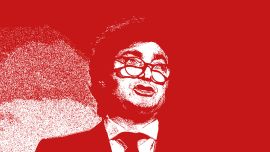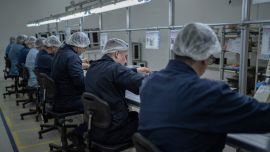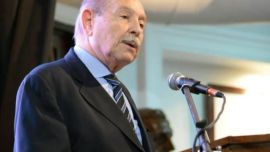Sunday, October 26, 2025, marks a turning point for President Javier Milei.
La Libertad Avanza’s victory in Argentina’s midterm elections – wider than anticipated by polls and even the libertarians themselves – not only consolidated Milei’s party in Congress, it created a new political backdrop: the President is now free to begin thinking about his re-election bid in 2027.
According to sources close to top officials in the Casa Rosada, speaking on condition of anonymity, Milei believes the result “ratifies the path” he has taken to date and grants him a wider margin to dive deeper into his economic and political project. Within the ruling party, there is an atmosphere combining euphoria and calculation: the idea of Milei’s 2027 candidacy begins to loom on the horizon, even before this new stage of administration – the second half of his first term – is defined.
The President, who for months traversed internal crises and tensions with allies, managed to turn around a negative trend with a campaign centred on the “defence of change.” The numbers were decisive: banking over 40 percent of votes nationwide, La Libertad Avanza consolidated itself as the leading force in key districts and widened its congressional representation. “The people have trusted us again,” figures close to Milei repeat.
For Argentines, the scene is inevitably reminiscent of 2017, when then-president Mauricio Macri also capitalised on a legislative victory and started to plan his re-election bid. Back then, enthusiasm in Macri’s Cambiemos coalition did not last long: the economy deteriorated, the social mood changed and the government was left with no political air, looking to the International Monetary Fund for a multi-billion-dollar bailout.
Sources say the Casa Rosada is taking note of history. “The difference is that Milei does not depend on marketing, but on convictions,” a source from the presidential circle claimed.
While the axis of power reaccommodates itself, the President and his team are preparing what his circle calls “second-generation reforms”: – package including employment, tax and pension legislative changes which Milei will seek to agree on with governors.
The goal, according to libertarian sources, is to avoid direct confrontation and move forward with “practical consensus.” That is why the government will resume its schedule of meetings with provincial leaders in the next few weeks to firm up a governability plan.
In parallel, Milei is poised to reshuffle the Cabinet, though he is no longer in a hurry, granted extra breathing room by favourable midterm results. Alejandra Monteoliva is already a potential candidate for national security minister to replace Patricia Bullrich, who is fighting especially hard to retain influence in that area. Manuel Adorni, Milei’s current spokesman, is another possibility if the Cabinet chief position becomes vacant and Guillermo Francos leaves.
Milei’s message to Argentina on Sunday night left little room for doubt. He spoke of “an irreversible change” and declared that “Argentina has entered a new era.” Within his inner circle they interpreted that phrase as more than a slogan: it is the first move towards the 2027 campaign.
“He’s already thinking about his re-election,” confides one major official, who prefers to remain nameless.



















Comments